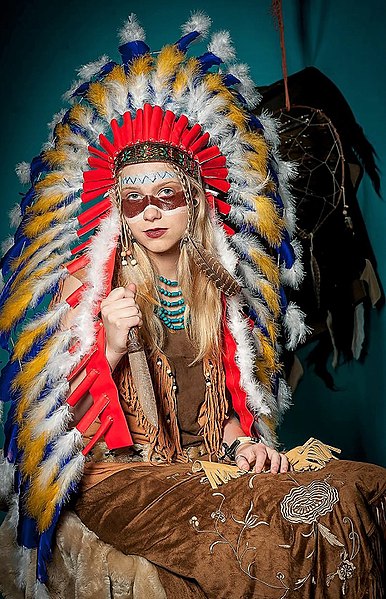Costumes and Controversy; Cultural Appreciation V Cultural Appropriation this Halloween
October 24, 2018
Controversial costumes suck the fun out of Halloween, an occasion usually reserved for frightful delight. As this year’s festivities approach and people get their costumes together, we must be mindful of the line between fun and offensive.
There are many recent examples of Halloween costumes disrespecting people’s history and culture. In 2016, Disney pulled a controversial costume based on a character in the film “Moana” after it was largely condemned. Many thought the costume, a brown zip-up suit covered in tribal tattoos with a leaf skirt, was an example of “brownfacing.”
Celebrity Julianne Hough also faced severe backlash when she donned blackface to portray an African American character in the popular Netflix series “Orange is the New Black” for a costume in 2013.
Both Disney and Hough apologized for the costumes and stated they didn’t intend to offend anyone in any way. This highlights the importance of learning as much as possible about a costume that involves someone else’s culture before you wear it.
It’s easy to get caught up in the excitement of Halloween and dressing up as your favorite character. Just like Hough did, most of us choose our Halloween costumes based on our interests and how we want to express ourselves that year.
Having to think about how your costume might negatively affect someone might seem unnecessary and like too much work. But it is necessary. And not putting in the work means disregarding the feelings and opinions of millions of people living in America.
And no, those people aren’t being oversensitive. A 2014 article by Jenee Desmond-Harris on Vox.com explains the racist and discriminatory origins of blackface.
“In the mid to late nineteenth century, white actors would routinely use black grease paint on their faces when depicting plantation slaves and free blacks on stage. To be clear, these weren’t flattering representations. At all. Taking place against the backdrop of a society that systematically mistreated and dehumanized black people, they were mocking portrayals that reinforced the idea that African-Americans were inferior in every way.”
In no way does this mean only black children are allowed to dress up as Black Panther or any other famous black personality this year. Going as your favorite character, even if that character’s race or ethnicity is not your own, is completely fine.
Just wear the costume, sans any historically racist additions or offensive stereotypes. Admiring different cultures is something that is largely encouraged and practiced in our society, and Halloween costumes need not be different.
All that’s required is for us to engage in conscious decision making when picking out our costumes. “I didn’t know” is not an acceptable excuse for wearing an offensive costume. There’s no reason to not know besides simply not wanting to or feeling as though you don’t need to.
Empathy is seriously lacking in our society. Being mindful of the Halloween costume you wear this year is a great way to show you’re being thoughtful of the experiences of others around you. As long as we’re keeping in mind the difference between cultural appreciation and cultural appropriation, any costume is fair game.




















